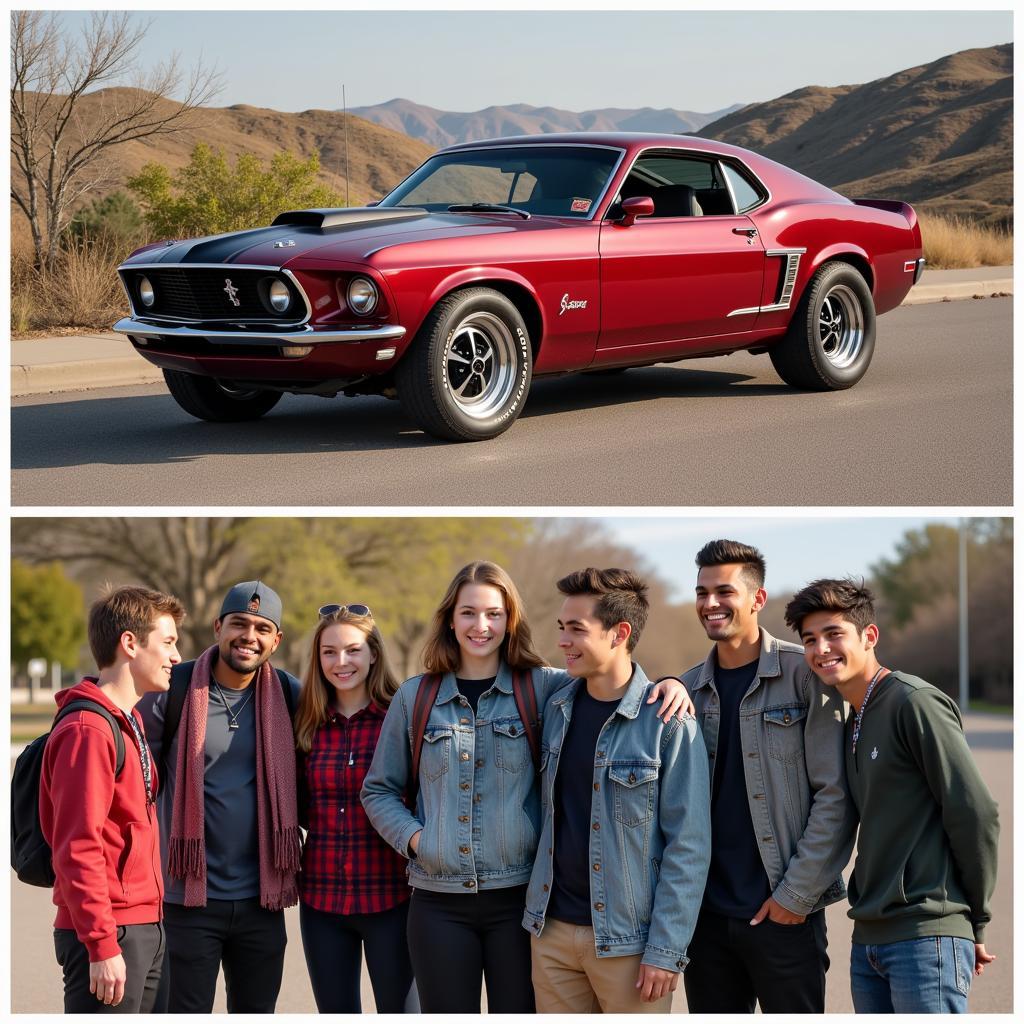The phrase “Mustang on Daytons” often surfaces in online spaces, shrouded in stereotypes and generalizations. While seemingly referencing a car modification trend, the term often acts as a veiled jab at certain demographics, perpetuating harmful biases and fueling societal divisions. This article aims to dissect the phrase “Mustang on Daytons,” unpacking its origins, analyzing its implications, and highlighting the importance of challenging such divisive labels.
Beyond the Facade: Understanding the Stereotype
At first glance, “Mustang on Daytons” might appear to be a harmless description of a car with aftermarket wheels. However, the phrase carries a heavier meaning, often used to stereotype young men, particularly those from marginalized communities. This stereotype paints a picture of individuals associated with recklessness, irresponsibility, and even criminal activity, solely based on their car modifications and assumed background.
The use of “Daytons” specifically, referring to a brand of wire wheels popularized in the 1990s lowrider culture, adds another layer to this complex issue. It draws a connection to a specific cultural aesthetic often demonized and misunderstood by mainstream society. This conflation of car culture with social prejudice underscores the deeper societal issue at play: judging individuals based on superficial appearances and pre-conceived notions.
The Dangers of Casual Stereotyping
While some may dismiss “Mustang on Daytons” as a harmless joke, the casual use of such stereotypes has real-world consequences. These seemingly innocuous labels contribute to a culture of prejudice, fostering mistrust, fear, and discrimination against specific groups.
 Stereotype Visualized
Stereotype Visualized
Furthermore, these stereotypes can permeate various aspects of life, from personal interactions and social media to law enforcement and the justice system. This can lead to profiling, biased treatment, and the reinforcement of existing inequalities, ultimately hindering the creation of a just and equitable society.
Challenging the Narrative: Embracing Individuality and Respect
It’s crucial to recognize that reducing individuals to a stereotype like “Mustang on Daytons” is not only inaccurate but also deeply disrespectful. Every person, regardless of their car or background, deserves to be treated with dignity and respect.
Instead of perpetuating harmful labels, let’s foster a culture of understanding and appreciation for individuality. Encouraging open dialogue, challenging our own biases, and celebrating the richness of diverse backgrounds are essential steps towards creating a more inclusive and equitable society.
Moving Forward: Shifting the Focus from Division to Unity
The next time you encounter the phrase “Mustang on Daytons” or any other stereotype, take a moment to reflect on its deeper implications. Let’s shift our focus from judging individuals based on superficial traits to fostering empathy, understanding, and respect for all.
Remember, judging a book by its cover, or in this case, a person by their car, will never lead to a true understanding of the rich tapestry of human experiences. Let’s work together to build a world where individuals are celebrated for their uniqueness, not confined by limiting and harmful stereotypes.
FAQs
1. Why is the term “Mustang on Daytons” considered offensive?
While seemingly about car modifications, the term is often used to stereotype and denigrate individuals from specific backgrounds, perpetuating harmful biases and generalizations.
2. What can I do to challenge these kinds of stereotypes?
Start by educating yourself and others about the impact of such labels. Engage in respectful dialogue, challenge your own biases, and promote understanding and inclusivity in your interactions.
3. Isn’t it just a harmless joke?
Even seemingly harmless jokes can contribute to a culture of prejudice and have real-world consequences for individuals and communities.
4. How can we promote a more accurate and respectful view of car culture?
By recognizing the diversity within car communities, appreciating individual expression, and separating car modifications from harmful stereotypes, we can foster a more inclusive and respectful car culture.
5. What are some resources for learning more about cultural sensitivity and challenging stereotypes?
[Insert links to relevant resources about cultural sensitivity, combating stereotypes, and promoting inclusivity.]
Need additional support? Contact us!
Phone: 02043854663
Email: [email protected]
Address: Khu 34, Bắc Giang, 260000, Vietnam
We have a dedicated support team available 24/7 to assist you.